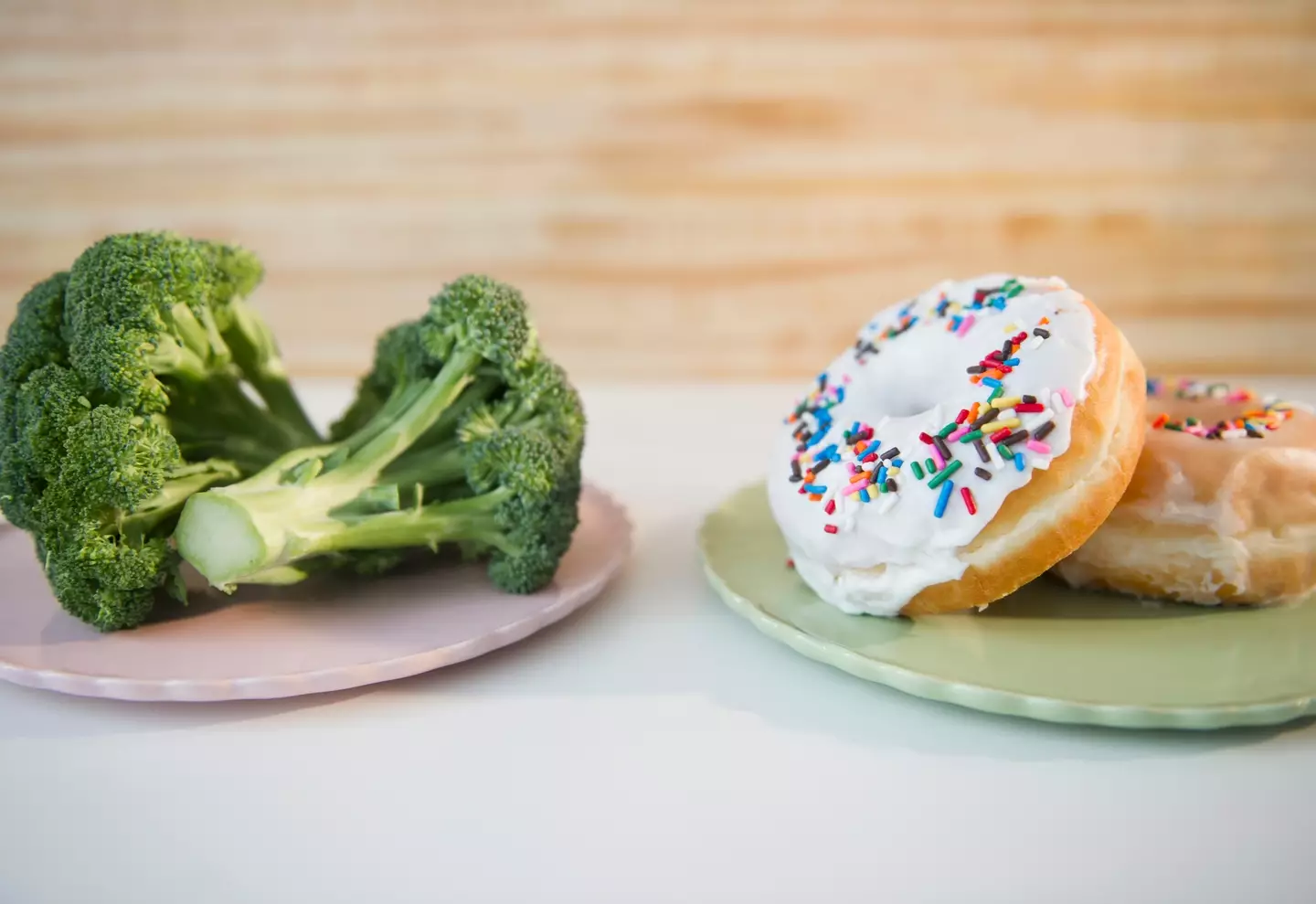
If you’re getting lost in the sauce where diet hacks are concerned, we can save you some time.
You lose weight by burning more calories than you consume, and it really is as simple as that. If you’re burning 2,000 calories a day, cutting your intake to 1,500 per day will typically see you drop a pound of fat each week. Consistency is key.
Meanwhile, several studies have found that exercise is a poor option for losing weight. This is because a moderate activity level will only account for a small percentage of your overall calorie burn, and there’s increasing evidence that suggests the body seeks to burn roughly the same amount of calories each day.

Advert
So, if you have burned a few hundred calories on a run, your body may avoid burning the equivalent calories on things like unnecessary inflammation. You may also subconsciously be more inactive for the rest of the day, saving calories by spending more time on the sofa or doing things like taking escalators rather than stairs.
That doesn’t mean exercise is pointless, of course, but it does indicate that your diet is way more important to your weight loss goals than putting the hours in at the gym.
As a general rule, a pound of fat is around 3,500 calories, so consuming 500 calories fewer than what you burn each day should see you lose a pound of fat each week. Resistance training and eating a balanced, protein-rich diet will help to ensure this lost weight is from fat rather than muscle.
Making simple changes to your diet can help you to feel more satisfied, get more nutrition, and consume fewer calories, and a recent study has found that subbing ultra-processed foods (UPFs) for minimally-processed foods (MPFs) can have a significant effect there, putting yet more data behind the argument that UPFs aren’t doing us many favours where body fat is concerned.
The study, published in Nature Medicine, divided a group of 55 adults into two groups with nutritionally-matched diets.
One group started an eight-week plan where, for four weeks, they consumed an MPF-based diet of raw meat, vegetables, oats, and butter. After that first four weeks, they went back to their usual diets before beginning a diet based on UPFs.
The second group did the same thing, but in reverse.
"Previous research has linked ultra-processed foods with poor health outcomes," said Samuel Dicken, the study’s lead author.
"But not all ultra-processed foods are inherently unhealthy based on their nutritional profile. The main aim of this trial was to fill crucial gaps in our knowledge about the role of food processing in the context of existing dietary guidance, and how it affects health outcomes such as weight, blood pressure, and body composition, as well as experiential factors like food cravings."
After eight weeks, participants from both groups had lost weight. This was put down to the study diets being less calorific than their typical diets.
However, the MPF diet triggered almost twice as much weight loss as the UPF-based one. For the MPF group, the majority of lost weight was from fat and water rather than muscle or fat-free mass, improving their overall body compositions.

"The global food system at the moment drives diet-related poor health and obesity, particularly because of the wide availability of cheap, unhealthy food," said co-author professor Chris van Tulleken.
"This study highlights the importance of ultra-processing in driving health outcomes in addition to the role of nutrients like fat, salt, and sugar. It underlines the need to shift the policy focus away from individual responsibility and onto the environmental drivers of obesity, such as the influence of multinational food companies in shaping unhealthy food environments."
